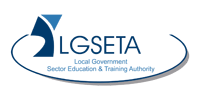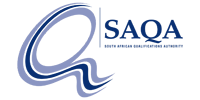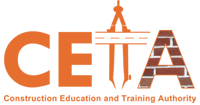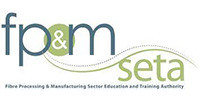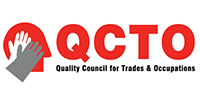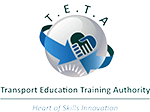Having first aid training knowledge can be crucial when facing emergencies and danger. One of the most critical areas to have such knowledge would be your job. Unfortunately, work environments are more varied than the number of employees who work in them. These can range from office jobs where emergencies may seem a million miles away to emergency service occupations where first aid training is used daily.
Due to this significant variation in occupational hazards and the need to protect employees at their place of employment, the South African government has legislated the need for first aid in workplaces. In the following article, we will look at what is required to meet the legal goals set by the South African government. As a South African business, we at EMCARE understand that first aid may seem a daunting challenge to implement correctly, which is why we are ready to assist you with our accredited branches all around the country.
What Is The OHS?
When referring to the OHS, we describe the Occupational Health and Safety Act, which was drawn up in 1993 and implemented on 1 January 1994 in South Africa. Within this Act, first aid training became a legal requirement for South African businesses or places of employment. The Act sets up three conditions:
- First and most importantly, places of work are to designate a health and safety representative with first aid training in case of an emergency. It is important to note that the business’s representative must be trained through an accredited institution like Emcare. The level of first aid training needed will be dictated by the industry, as some employment environments like mining or construction come with more danger than others and therefore require a representative with a higher level of training.
- Another crucial aspect of the Act states that employers are to provide employees with the necessary health care equipment to perform first aid procedures correctly. This includes things like:
- First aid kits containing standardised equipment like dressings, antiseptic solution, and disposable gloves.
- AEDs (Automated external defibrillator)
- Pain relief medication
- Thermal blankets
All employees, not only health and safety representatives, should have a basic understanding of how to use this equipment. In addition, these first aid tools should be easily accessible by any on-site staff member.
- The last important facet of the Act is that the Department of Labor (DoL) was designated as the regulator concerning workplace health and safety. In the following section, we will have a closer look at the role and responsibility of the DoL.

The Department Of Labour Role
As health and safety regulators in workplaces across South Africa, the DoL, through the OHS’s direction, appoints a chief inspector and several investigators. Their primary duty is to visit as many businesses as possible and ensure that these sites adhere to legislation. Due to their significant role in enforcing first aid training in the workplace, let us investigate them further by looking at what requirements they will check and what authority they have with businesses that are non-compliant with the OHS Act.
Minimum Requirements:
- There is always a minimum of one first aid responder with accredited first aid training (generally the health and safety representative) on-site.
- The ratio of first aid responders to the total employee population should be kept at about one to every fifty employees. However, this ratio may need to be higher for businesses deemed more dangerous and require more specialised training.
- Employers are to provide adequate first-aid facilities and make all facilities accessible to all staff members.
- Employers are expected to conduct regular inspections of the first aid facilities and replenish anything that has expired or been used.
- Employers must thoroughly record all first-aid training conducted on or off-site.
Investigator Powers
- The foremost authority granted to DoL investigators is to issue notices of non-conformance to organisations or employers who do not comply with the abovementioned requirements.
- Depending on the severity of non-conformance or aversion by either the employer or organisation to change once notified, the investigator may escalate the issue. This may then require either senior investigators or, in severe cases, the Chief Inspector to become involved. If the circumstances show that sites knowingly break the law after being warned, the employer or company may face a fine, jail time or a combination of both.
- Finally, investigators have a right to access. This means businesses do not have the right to refuse investigation and must allow investigators onto the site to conduct their business. These access rights also extend to first aid training records, which they can review.

How EMCARE Can Help You Be Legally Compliant
At EMCARE, we aim to help get you at your place of occupation set up with first aid training so that you can meet the legal requirements of the OHS. Let us look at some of the services we offer in this regard.
First Aid Courses:
At EMCARE, we offer first aid courses for beginner to advanced students. Of course, all our courses are accredited and meet the standards set by the Department of Labor. Our three main courses are set out as follows:
- First aid course level 1 (FA1): This is the introductory course and an introduction to emergency management.
- First aid course level 2 (FA2): This is an intermediate course equipping students with a thorough knowledge of emergency care and a higher standard of patient care compared to level 1.
- First aid course level 3 (FA3): This is the highest training in South Africa. This training is usually reserved for those in emergency services or work supervisors who work in especially hazardous work environments.
Other Services:
Although the course above will provide your business with the correct training to meet the requirements set out by the OHS Act, you may still want to educate your staff on other areas of emergency healthcare. At EMCARE, we can help you with this as well. We offer the following services too:
- First Aid Refresher (FAR) Course: This entry-level program will make the participants confident enough to handle basic wounds.
- CPR and AED Course: This course is targeted towards responders who do not have a healthcare background but generally want to be of help in an emergency.
- HIV and AIDS Awareness course: This covers a complete range of topics on HIV and AIDS in the workplace.
So, to avoid the ire of your next DoL inspector, contact our friendly staff at EMCARE today and get you and your coworkers booked for the next available first aid course!



